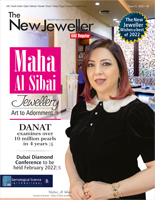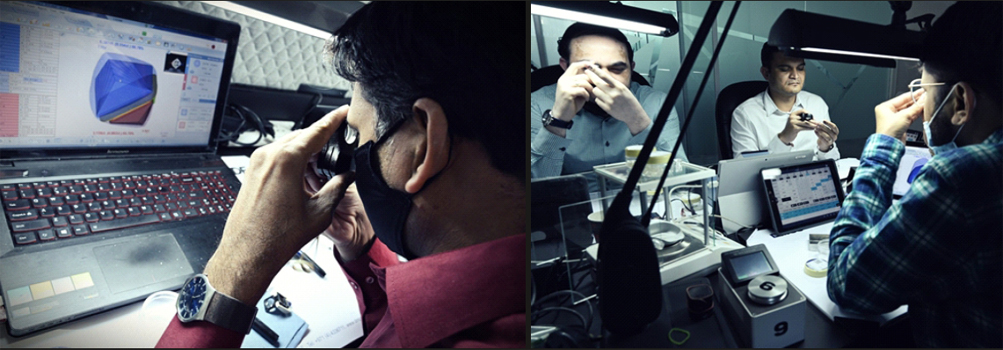
 |
|
| Home Technology / Education Events & News Archives Designs |
|
How to Bid Wisely at
Rough Diamond Tenders
However, every cloud has a silver lining. Mary Frances Geretly's immortal marketing slogan 'A Diamond is Forever' brought it to life, and the rough diamond sales business restarted with a big bang in 2021. The wedding bells that fell silent in 2020 due to worldwide lock downs, started ringing once again in 2021. The diamonds that were sitting in the jewelry cases were being bought up for the brides to be. People too started to invest more carefully than ever before. The demand for polished diamonds increased and thus raised the supply of rough diamonds. The Covid-19 pandemic has changed the way people invest their money today and has taught the producers of rough diamonds how to secure the maximum value from their stones. The old and traditional school of selling rough diamonds through bilateral negotiations shifted to a new paradigm by directly tying up with luxury jewelry brands or offering productions on auctions or tenders to sell directly to the manufacturers to get the maximum return on their investments. We will discuss how the immune model of selling rough diamonds by tender can be tough on poor economies and how a buyer must prepare for a tender to avoid mistakes A rough diamond tender for a manufacturer is like a shark being attracted to blood in the sea. The manufacturer can buy a suitable product at the right price from a tender house. It reduces their costs; there is no need to waste their time wandering from continent to continent searching for an authentic and trustworthy source of rough diamonds. They can quickly get what they want under one roof. However, counter forces can lead a buyer to make various mistakes like bidding excitement, price pressure, etc. Being well prepared before participating in a tender is the key to success. I have seen many well-experienced players fall into the trap by making emotional decisions that influence their judgment, and choices. The financial strength of a buyer is the most crucial factor before knocking on the door of a tender house. Below are some common mistakes buyers make at a tender that can be easily avoided: Lack of preparation The most important thing that a buyer needs to understand is that the probability of a successful bid is 50%. Either you win the parcel, or you lose it. Probability = number of ways of wining / number of possible outcomes In such an event where the chances of success are equal, the buyer must examine the rough diamonds thoroughly to learn the parcel's actual value. 
A good tender house provides ample time for the buyer to assess the rough, use mapping and planning machines to estimate the polished outcome. A good tender house should provide relevant data - price lists of similar parcels sold in the past and the price lists of the result of the polished stone so that buyers can analyze the market and confidently bid on the lot with surety. The buyer must finish the complete examination of the parcels before registering their bids. It is wise to go to the tender house with a comprehensive bidding strategy: • What increments are you prepared to go up to on top of
your price?
Let go of emotions Bidding in a tender is an exciting business, and it can be easy to get swept away in the moment, primarily if you use your heart instead of your brain. A buyer must remember that purchasing rough diamonds is essential for his business but remain clear-headed with sound economic reasoning. The most important thing is to know your financial capability and how high you can go for specific parcels. If you find your emotion makes you overbid, you must withdraw at once, take a deep breath, go through your planning papers, and create a new bid. A slight mistake can either forfeit your deposit or could lead you to pay a considerable penalty afterward. A buyer must register bids with confidence based on valuation and price analysis. Viewing again and again on price and value A buyer needs to make sure his parcel evaluation aligns with the potential market value of the parcel he is bidding on. A good tender house always provides an opportunity for the buyer to review the lots and to cross-check what he is bidding. We run a rough diamond tender for seven days and provide multiple viewing appointments to the buyers to view the parcels repeatedly to make sure they submit the bid with confidence and surety. Organizing Finance The most critical part is to pay for a successful bid before participating in a rough diamond tender. A buyer must arrange funds in his bank account or get pre-approval from the financiers for the amount they are willing to pay. It helps buyers make bids confidently and allows them to work with the maximum limits. Buyers must understand that if they make a successful bid without pre-arranging finance, they are obliged to an unconditional contract with the tender house to acknowledge their successful bids. Special statutes and ordinances govern rough diamond tenders and there are stringent rules, regulations, and guidelines to honor contractual commitments. There are a lot of planned upcoming sales events of rough diamonds in 2022, and I wish you happy, healthy, and safe buying. The views expressed here are solely those of the author in his private capacity. No one should act upon any opinion or information without consulting a professional qualified adviser.
|